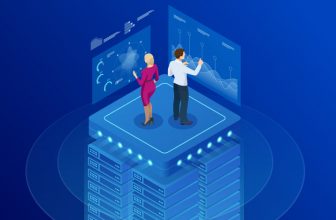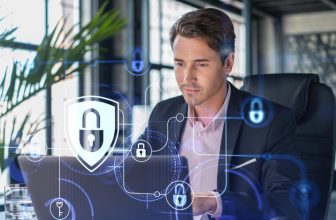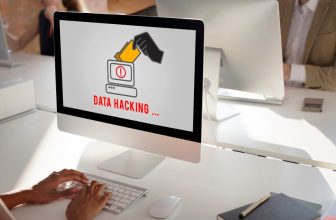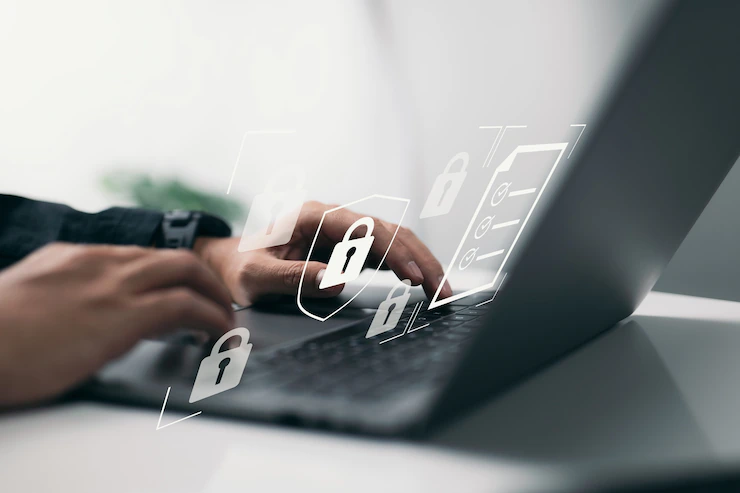
Online safety is a perennial concern for the everyday user, but the rapid pace of technology change has made staying up-to-date on safe online practices more difficult than ever.
In a recent study conducted by the Pew Research Center on Internet & American Life, it was found that nearly half of adults are concerned about their online privacy.
Of those who are concerned, 41 percent either use the privacy settings already built into social media sites or actively look for tools to better protect their privacy when on these sites.
Fewer than one in four (23%) say they have attempted to adjust their privacy settings. Additionally, 70% of adults with Internet access say they are at least somewhat concerned about third parties accessing the data they share on social networking sites.
We’ve Gathered Together The Following 20 Tips To Help You Stay Safe Online In 2022
1) Don’t Share Your Biometrics Online
While many websites are now using your bioMetrics for identification purposes, it’s important to note that this information should be guarded carefully. Many negligent companies have allowed their BioMetric databases to be hacked over the years.
Furthermore, the use of biometrics for authentication is not yet widespread so it’s unclear whether or not many people actually realize how much data they’re putting out there online by sharing their unique bodily identifiers with others.
2) Avoid Mandatory Disclosure
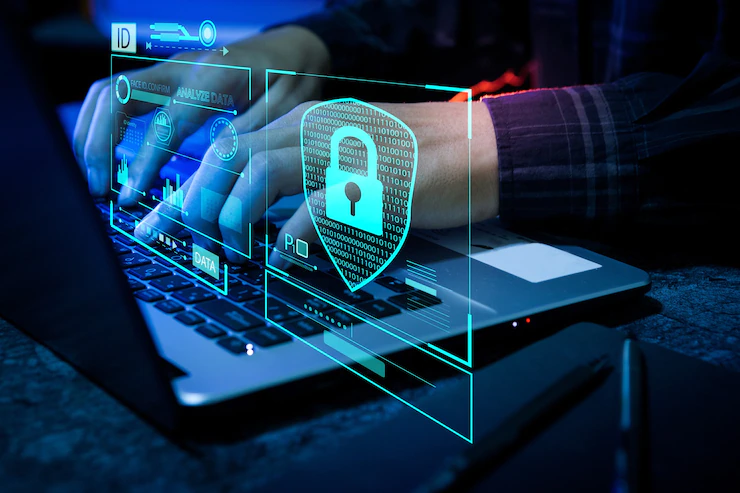
Certain social media sites and other websites allow users to opt-in to the collection of their personal data. These tools, while helpful in providing information about what information is being collected from you, can be vulnerable to hacking efforts.
The best bet is always going to be only disclosing the information that’s required for a given service. In that way, you’ve eliminated the need for a third party to ever have access to your data in the first place.
3) Be Wary of Social Media Sites with Fake Profiles
Scammers often set up fake profiles on social media sites with the goal of either tricking people into revealing personal information or infecting their computers to steal private data.
One common example is a “soul mate” scam where a fake profile lures users into an online relationship and then uses this trust to encourage them to send money or reveal sensitive details about themselves.
This is particularly problematic when dealing with dating websites or social networking platforms used by teenagers. Always verify someone’s identity before disclosing personal information and use trusted antivirus software on your computer to reduce the likelihood of being hacked by a third party.
4) Don’t Use Mobile Apps that Request Access to Additional Information
Many mobile apps ask for access to specific information on your device so they can function properly. However, oftentimes this information is requested without need rather than being used for the application’s intended purpose.
For example, many apps require permission to access location data on your mobile device even if it has no relevance to their functionality. There are countless cases where personal information stored on one app has been accessed by another app without the user knowing about it.
This information may be sold or traded with other companies who then use it in ways you don’t expect or want. So, whether you’re searching for shoes online or browsing sugar baby profiles, It’s important that you carefully consider which apps you choose to install on your mobile device and which permissions they request access to.
5) Use a Password Manager
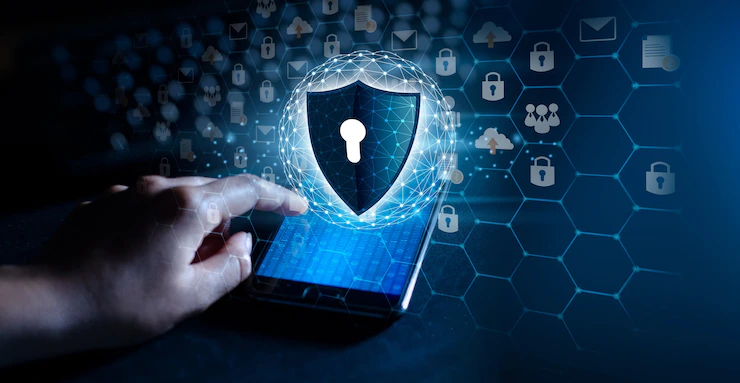
Password managers are a great way to manage your passwords while still protecting them from third parties that may try to get access to them. Most of these tools will store your passwords in an encrypted format, requiring you to enter a master password before being able to view the list.
This ensures that only the user has access and reduces the likelihood of accidentally sharing one’s password with another person. One should also be aware that hackers have been known to use keyloggers that can monitor your keystrokes and send this information back for remote viewing by a third party without you even realizing it.
Be mindful of what is being displayed on the screen when entering passwords so as not to reveal any sensitive details about yourself or others involved in whatever service you’re using.
6) Encrypt Your Device and Laptop
Using a strong password on your device or laptop is another important practice that will keep the information stored there secure from third parties.
Encryption ensures that any data being sent to your computer can’t be intercepted by outside parties who are trying to access it without your knowledge.
If you’re using a public computer, you should always shut down your session when you’re not actively working with it so as not to leave yourself vulnerable the next time someone uses that station.
It’s also recommended to take advantage of automated firmware updates which can help guard against malware designed specifically for targeting security holes present in older versions of software currently being used on certain devices.
7) Use Privacy-Protecting Search Engines
Different search engines will have different privacy policies when it comes to how they index search results and the types of data being collected from users. If possible, try using a reputable search engine that prefers not to track any information related to what you’re searching for or who may be using the service.
You can also use a website like “StartPage,” which is a reliable resource designed with user privacy in mind. The most important thing to remember is not to make your searches private by default since this would defeat the purpose of having a separate search engine altogether.
Each search engine should present clear explanations about what information they collect and how it is used if you decide to make your session private or not.
However, if you’re concerned about protecting your privacy, it’s recommended to use a search engine designed specifically for that purpose.
8) Take Advantage of HTTPS Features on Websites
As more websites continue to use HTTPS encryption protocols, users will have an easier time identifying the ones that are safe to browse while avoiding those that may compromise their private information.
Sites using HTTPS protocols are designed to provide more security during your online sessions, which is why it’s important not to assume every website offers this option by default.
A website deciding not to utilize these tools can leave its visitors at risk for having sensitive data intercepted or tampered with when being redirected between the user and server.
It’s also worth pointing out that some sites may display a lock symbol in either your browser bar or next to the URL being visited. If you’re unsure if the website is using HTTPS or not, this symbol will help identify it as a trusted site that’s relatively safe to use.
9) Don’t Use Public Wi-Fi
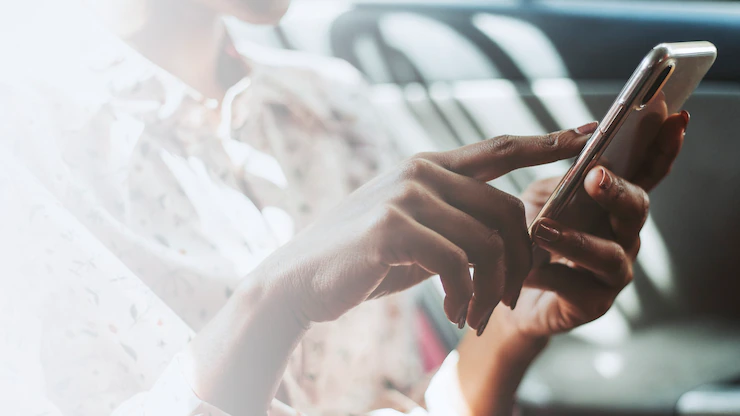
Public networks are inherently less secure than their private counterparts since they’re actively being shared with other users who may or may not be doing so for malicious purposes.
Depending on the location where the network is being used, there may be people around monitoring internet activity and collecting any data passed between devices connected to it.
It’s also possible for hackers to gain access to these connections by using tools designed specifically for intercepting your web traffic without your knowledge.
You can think of public wifi like an open microphone at an event where anyone in the area can listen in, or like an unsecured wifi hotspot at your favorite restaurant.
The only difference is that the former typically requires some level of expertise to navigate while the latter is usually more difficult for outsiders to access.
10) Beware of Malicious Websites/Mail Attachments
The number of new malware attacks made possible by unsuspecting users continues to rise each year thanks to more sophisticated hackers taking advantage of security vulnerabilities currently present on certain devices and apps.
No preventative measures must be put in place to protect yourself from having your data accessed without your knowledge if you want to avoid becoming a victim.
This includes utilizing the latest version of antivirus software, keeping any third-party applications up-to-date with patches when possible, and only downloading files from trusted sources.
If you’re not sure about a file being offered to you, it’s recommended that you err on the side of caution by either declining its download or deleting it altogether depending on what type of situation you’re in.
This is especially important with email attachments since they can contain harmful malware just like any other executable file.
11) Don’t Use Public Computers for Financial Engagements
Depending on where the computer lab or location where you plan to use one is located, there may be people monitoring internet activity performed on these machines.
Some hackers will attempt to gain access to public computers so they can steal private information once logged inside your account without anyone noticing until it’s too late.
Some even pose as employees just trying to do their jobs, only to use keystroke loggers or other invasive tools designed for stealing your data. Unsecured wifi networks are just as dangerous if they’re hosted by hackers not wanting the attention that comes with having outsiders accuse them of doing so.
Since you can’t prevent yourself from being hacked while using public computers or unsecured wifi, it’s recommended that you refrain from conducting any financial transactions on these devices at all costs.
12) Choose What Apps Have Access to Sensitive Information
Having too much faith in third-party applications is one of the most common mistakes made by inexperienced internet users who want to take advantage of everything without reading up on each individual feature before using it. Ideally, you should only allow apps to have access to the most basic of information required for them to function properly.
After all, giving a total stranger permission to monitor your social media activity without you realizing is just as bad as inviting them into your home.
If anything, they can use this data in coordination with other personally-identifiable information they’ve obtained from somewhere else online in order for it to be used against you or someone else close enough to you that matters.
13) Use Two-Factor Authentication Where Possible
Some websites offer an added layer of security known as two-factor authentication (2FA). This feature makes it so nothing sensitive enters your account without verifying who you are by requiring something physical in addition to whatever means of identification you’ve previously used.
The most common forms of extra security include entering a unique code that’s either sent to you via text, e-mail, or forced to be entered manually after checking an exclusive notification.
Some apps will use push notifications as well, but these may not always be available depending on the type of device and operating system you’re using.
Keep in mind 2FA is not 100% foolproof and cannot prevent the worst from happening if your account is hacked anyway so it’s best to take other preventative measures listed here as soon as possible if you want to stay safe as possible online.
14) Implement Antivirus Software ASAP
Many benefits come with having antivirus software running on your PC at all times, but it should primarily be used for blocking malware and viruses from infecting the computer you’re using.
Other tools such as anti-malware, anti-ransomware, firewall, and other security add-ons should be included in your antivirus service’s package so you get the most out of what they have to offer.
If you’re not sure which antivirus application is best for you, feel free to visit our website where we go over each one in detail while also providing insightful tips and tricks that can help improve their overall performance.
15) Activate a VPN & Use It Whenever Possible
A virtual private network (VPN) is another form of online protection that should always be enabled when browsing the internet or downloading files from questionable websites.
This feature encrypts your connection to the VPN’s host server so it’s impossible for third parties to obtain any information they wouldn’t already have access to.
This also makes it more difficult for hackers and other malicious entities to track your coordinates without having to be connected through the same network as you, which is why it’s recommended that you choose a reliable provider with servers located on every continent (or at least every major one) if possible.
Some websites block traffic coming from known VPN servers used by others, but using public ones should bypass this limitation most of the time without interference.
16) Avoid Using Free Wi-Fi Networks
Free wifi networks are some of the fastest and most convenient ways of connecting to the internet without having to rely on mobile data, but they can also be used to access your files or spy on whatever you’re doing through the connection.
Although there’s no way of knowing which networks are safe and which aren’t without closely monitoring each one manually, it should be said that most commercial establishments set up their routers to block unapproved connections by default unless an electronic payment has been completed beforehand or someone with proper credentials permitted them to allow non-paying guests onto the network at some point.
17) Backup All Your Files Regularly
If you want to prevent losing your data forever due to ransomware, computer viruses, hard disk corruption, or any other number of potential malware infections capable of fully removing access to certain files not properly backed up in multiple places, it’s best to regularly backup all of the files on your computer and possibly even those found on other devices if possible (especially smartphones and tablets).
There are several programs and services capable of doing this automatically, some more affordable than others, but you can also use plain old manual labor by copying any important files onto an external storage device such as a flash drive or external hard disk.
18) Keep Your System Updated at All Times
In order to make sure your computer doesn’t have any major security vulnerabilities that can be exploited by hackers, it’s important to always leave the Windows Update service enabled and keep all other applications you use regularly patched as well.
Many operating system updates fix multiple issues that could have otherwise been used against you in a cyberattack so they’re usually more of a blessing than a nuisance for anyone trying to protect their information online.
Google Chrome users should also consider enabling automatic updates for their browser if they want to stay up-to-date on the latest performance improvements and bug fixes since installing software from an external source is currently not supported.
19) Use Browsers Designed With Privacy in Mind
Browsers such as Mozilla Firefox and Tor are more focused on protecting your privacy than others like Google Chrome or Safari, which is why they come with additional features such as Do Not Track support by default.
These options can be manually enabled in most other browsers, but it’s usually easier to simply select one that was designed specifically for the purpose at hand so you don’t have to bother with extra workarounds just to get the same level of protection given by their competitors.
20) Use Password Generators Whenever Possible
Finally, an extremely effective way of protecting yourself against hackers trying to gain access to your accounts through keyloggers is creating strong passwords for each individual website you use instead of using the same over and over again.
The best way to accomplish this is by using a dedicated password generator that can create random passwords of any length and complexity for each individual service, ensuring that they’ll all be unique even if you happen to use multiple accounts on the same website.
The Bottom Line
Although it’s impossible of staying safe online without having to take additional steps such as using a virtual private network or relying on a specialist service for file encryption, the methods outlined above should be enough to prevent you from being targeted by casual attackers who don’t have time to pore over your personal information manually.
Most of these pieces of advice are simply good sense and common sense so if something sounds like they could potentially put yourself at any sort of risk whatsoever, it might be worth your while to reconsider what you’re doing before continuing ahead with whatever course of action they were referring to in order not to make things worse than they already are.
Read Also:



